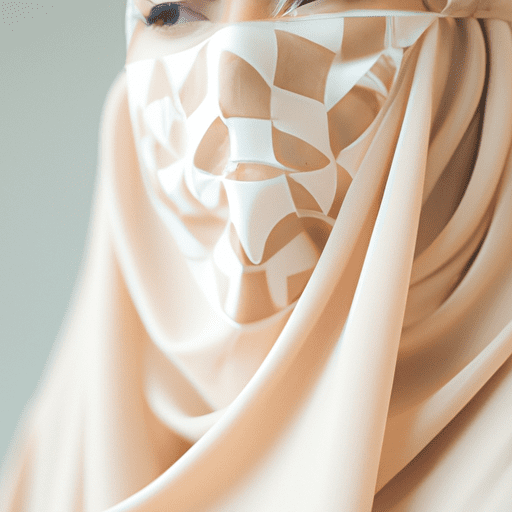As the world becomes more aware of ethical issues surrounding the production and consumption of goods, the Halal lifestyle and fashion industry have started to gain popularity through promoting ethical consciousness. This trend has caught the attention of Muslim consumers, as well as non-Muslims who are seeking shared values.
Halal lifestyle and fashion refer to the development and production of products that are compliant with Islamic dietary laws and principles. This extends beyond food to encompass clothing, cosmetics, and other consumer goods. Halal certification signifies that a product has undergone a rigorous process to ensure its compliance with Islamic principles.
The market for Halal products has been growing significantly in recent years, fueled by an increasing Muslim population and a growing desire for ethical lifestyle choices. According to the State of the Global Islamic Economy Report 2020, the global Halal economy is set to reach a value of $3.2 trillion by 2024, representing a significant share of the global consumer market.
Halal fashion has become a significant part of this industry, with Muslim and non-Muslim consumers alike seeking fashionable clothing that meets ethical standards. Many major fashion houses have launched Halal collections, and smaller independent designers have also entered the market, creating unique and stylish pieces that cater to this growing demand.
Halal fashion is not just about creating clothes that are modest or loose-fitting, but also about ensuring that every aspect of the production process is compliant with Islamic principles. This includes the sourcing of materials, the manufacturing process, and the labor conditions of workers involved in the production. The use of eco-friendly and sustainable materials, as well as the avoidance of animal-derived fabrics, aligns with Islamic values of environmental stewardship and kindness to animals.
The trend towards Halal fashion reflects a wider movement towards conscious consumption and ethical lifestyle choices. With issues such as climate change and labor exploitation becoming increasingly prevalent, consumers are demanding greater transparency and accountability from the brands they choose to support. Halal fashion seeks to satisfy this demand by promoting ethical practices and providing a genuine alternative to fast fashion.
In addition to the ethical awareness, Halal fashion has also gained popularity due to its modest designs. Modesty is a significant aspect of Islamic faith and one that is closely tied to dress. Halal fashion is designed to be both stylish and modest, catering to the needs of Muslim women who want to express their personal style while remaining within the boundaries of Islamic dress.
Halal fashion has also played a significant role in the empowerment of Muslim women. The industry has provided opportunities for Muslim women to build their own businesses and to pursue careers in a field that aligns with their values. This has challenged traditional notions of what it means to be a Muslim woman and has given them a platform to showcase their creativity and talent.
As Halal fashion continues to grow, it is essential to maintain the authenticity and ethics that underpin the industry. The lack of standardization and governance in the Halal certification process has led to some ambiguity, with the potential for exploitation by unscrupulous businesses. Therefore, it is important for consumers to be informed about the certification process and to be vigilant about the brands they choose to support.
In conclusion, the trend towards Halal lifestyle and fashion reflects a growing awareness of ethical consumption and the desire for shared values. Halal fashion provides a genuine alternative to fast fashion, promoting conscious consumption and ethical practices. It has become an empowering force for Muslim women, providing opportunities for them to express their creativity and talent while adhering to the principles of Islamic dress. With the global Halal economy set to grow significantly in the coming years, Halal lifestyle and fashion are poised to become major players in the global consumer market.


